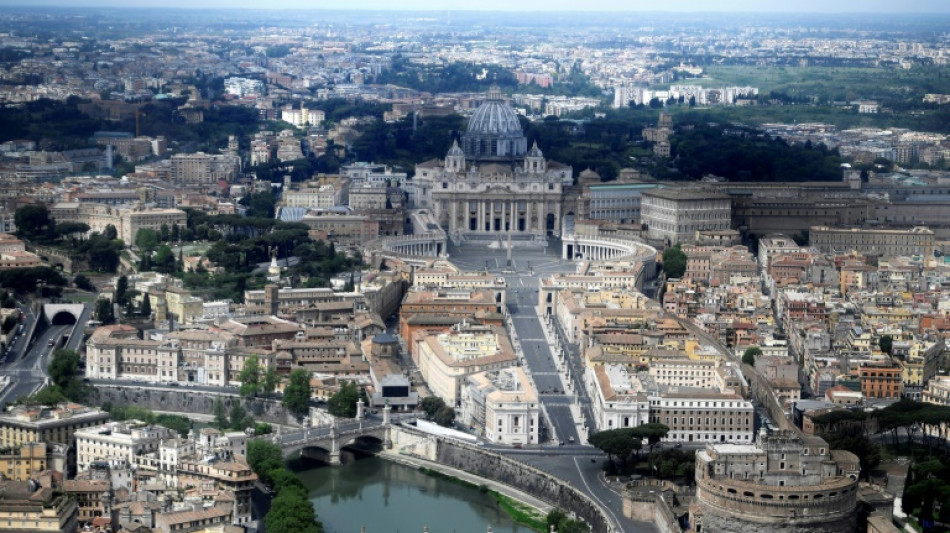
-
 Israel reopens key roads as firefighters battle blaze
Israel reopens key roads as firefighters battle blaze
-
Europe far-right surge masks divisions

-
 James will mull NBA future after Lakers playoff exit
James will mull NBA future after Lakers playoff exit
-
Ukraine's chief rabbi sings plea to Trump to side with Kyiv

-
 Australian mushroom meal victim 'hunched' in pain, court hears
Australian mushroom meal victim 'hunched' in pain, court hears
-
Lakers dumped out of playoffs by Wolves, Rockets rout Warriors

-
 Booming tourism and climate change threaten Albania's coast
Booming tourism and climate change threaten Albania's coast
-
US reaching out to China for tariff talks: Beijing state media

-
 Tariffs prompt Bank of Japan to lower growth forecasts
Tariffs prompt Bank of Japan to lower growth forecasts
-
Kiss faces little time to set Wallabies on path to home World Cup glory

-
 Serbian students, unions join forces for anti-corruption protest
Serbian students, unions join forces for anti-corruption protest
-
Slow and easily beaten -- Messi's Miami project risks global embarrassment

-
 Fan in hospital after falling to field at Pirates game
Fan in hospital after falling to field at Pirates game
-
Nuclear power sparks Australian election battle

-
 Tokyo stocks rise as BoJ holds rates steady
Tokyo stocks rise as BoJ holds rates steady
-
Bank of Japan holds rates, lowers growth forecasts

-
 'Sleeping giants' Bordeaux-Begles awaken before Champions Cup semis
'Sleeping giants' Bordeaux-Begles awaken before Champions Cup semis
-
Napoli eye Scudetto as Inter hope for post-Barca bounce-back

-
 Germany's 'absolutely insane' second tier rivalling Europe's best
Germany's 'absolutely insane' second tier rivalling Europe's best
-
PSG minds on Arsenal return as French clubs scrap for Champions League places

-
 UK WWII veteran remembers joy of war's end, 80 years on
UK WWII veteran remembers joy of war's end, 80 years on
-
Myanmar junta lets post-quake truce expire

-
 Rockets romp past Warriors to extend NBA playoff series
Rockets romp past Warriors to extend NBA playoff series
-
Messi, Inter Miami CONCACAF Cup dream over as Vancouver advance

-
 UN body warns over Trump's deep-sea mining order
UN body warns over Trump's deep-sea mining order
-
UK local elections test big two parties

-
 US judge says Apple defied order in App Store case
US judge says Apple defied order in App Store case
-
Seventeen years later, Brood XIV cicadas emerge in US

-
 Scorching 1,500m return for Olympic great Ledecky in Florida
Scorching 1,500m return for Olympic great Ledecky in Florida
-
Israel's Netanyahu warns wildfires could reach Jerusalem

-
 Istanbul lockdown aims to prevent May Day marches
Istanbul lockdown aims to prevent May Day marches
-
Formation Metals Announces Appointment of Adrian Smith to Advisory Committee

-
 Cerrado Gold Announces Q4 And Annual 2024 Financial Results
Cerrado Gold Announces Q4 And Annual 2024 Financial Results
-
Australian guard Daniels of Hawks named NBA's most improved

-
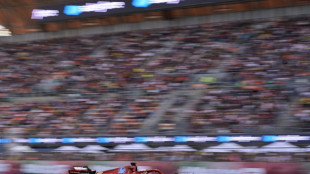 Mexico City to host F1 races until 2028
Mexico City to host F1 races until 2028
-
Morales vows no surrender in bid to reclaim Bolivian presidency
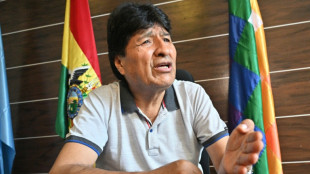
-
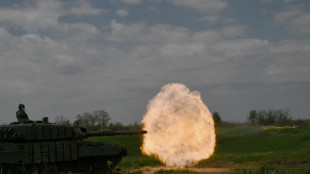 Ukraine, US sign minerals deal, tying Trump to Kyiv
Ukraine, US sign minerals deal, tying Trump to Kyiv
-
Phenomenons like Yamal born every 50 years: Inter's Inzaghi
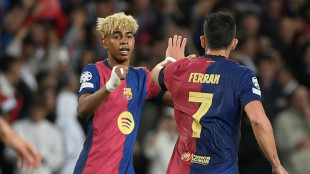
-
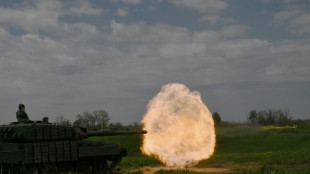 Ukraine, US say minerals deal ready as Kyiv hails sharing
Ukraine, US say minerals deal ready as Kyiv hails sharing
-
Global stocks mostly rise following mixed economic data
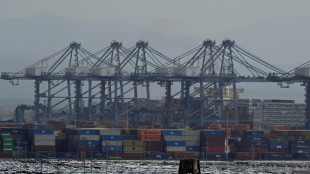
-
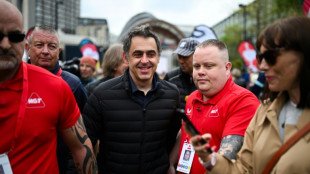 O'Sullivan says he must play better to win eighth snooker world title after seeing off Si Jiahui
O'Sullivan says he must play better to win eighth snooker world title after seeing off Si Jiahui
-
Sabalenka eases past Kostyuk into Madrid Open semis
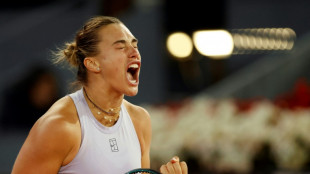
-
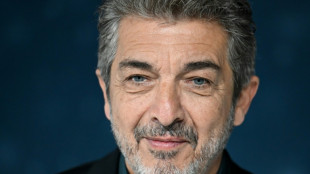 Netflix's 'The Eternaut' echoes fight against tyranny: actor Ricardo Darin
Netflix's 'The Eternaut' echoes fight against tyranny: actor Ricardo Darin
-
US economy unexpectedly shrinks, Trump blames Biden
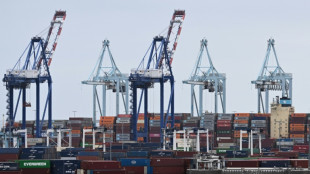
-
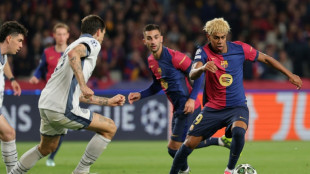 Barca fight back against Inter in sensational semi-final draw
Barca fight back against Inter in sensational semi-final draw
-
Meta quarterly profit climbs despite big cloud spending
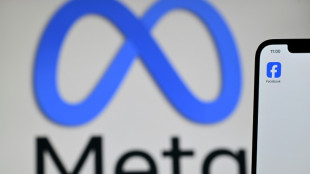
-
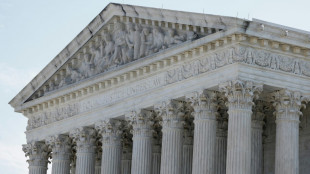 US Supreme Court weighs public funding of religious charter school
US Supreme Court weighs public funding of religious charter school
-
Climate change made fire conditions twice as likely in South Korea blazes: study
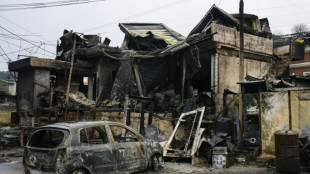
-
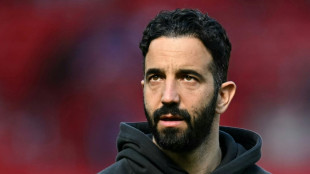 Amorim says not even Europa League glory can save Man Utd's season
Amorim says not even Europa League glory can save Man Utd's season
-
Syria reports Israeli strikes as clashes with Druze spread
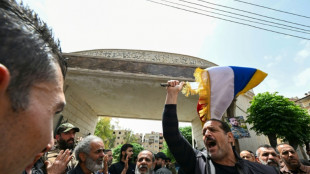

Continuity or rupture: what direction for the next pope?
For years, traditionalists raged at Pope Francis's liberal approach. The question now is whether his successor will walk the same path, or take the Catholic Church in a new direction.
Cardinals will meet within days for a conclave to elect a new pontiff, sparking fevered speculation about how the next pope will guide the world's 1.4 billion Catholics.
But experts say that despite his reforms, Francis did not change fundamental doctrine -- suggesting the next leader could bring a fresh style and different priorities, but is unlikely to upend 2,000-years of belief.
"Whether on the issues of abortion, the end of life, marriage for priests, the ordination of women, or homosexuality, which were points of traditional conservative doctrine, Francis has changed nothing," said Francois Mabille, director of the Geopolitical Observatory of Religion.
The Argentine certainly took some radical steps. He made institutional changes, lifted the veil of papal secrecy over child sex abuse, limited the use of the Latin mass, and opened the door to blessings of same-sex couples.
He emphasised humility, wasted no opportunity to speak out for the voiceless and lambast the powerful, while promising to open the Church to all, epitomised by his remark on gay believers: "Who am I to judge?".
All these statements "made an impression on public opinion", Mabille said.
With his successor, "it is not certain that the issue of migrants, which he hammered home for 12 years, will be taken up in the same way and with such frequency", the analyst said.
Another shift could be on world conflicts, in which Francis has intervened in a way "unmatched by almost all the sovereign pontiffs of the 20th century", Mabille said.
But Francis's demands for peace in Gaza and Ukraine failed to produce any tangible results, beyond riling Israel and sparking bitterness among many in Kyiv for suggesting it raise the "white flag" to Russia.
Whether on Ukraine or the Middle East, Francis's successor "will undoubtedly take a back seat", Mabille said.
- 'Flexibility' -
The future pope will, however, have to manage a number of key challenges facing the Catholic Church, from the role of women to the continued revelations about clerical child sex abuse.
The European church is also facing a crisis in vocations and falling church attendance, even if the numbers of believers are growing in Africa and Asia.
Martin Dumont, secretary general of the Research Institute for the Study of Religions, agreed it was too simplistic to speak of continuity or rupture.
The head of the Church "must be a point of unity for all Catholics", he told AFP.
Personality will play a role.
Dumont said "there will undoubtedly be a need for someone who speaks less" and in a "more controlled" approach, after Francis "spoke all the time, on all subjects".
But he predicted no major changes in the way the Church spreads the Catholic faith.
- 'Surprises' -
In previous conclaves, the cardinals have formed distinct groups.
Dumont noted that in 2005, after the death of John Paul II, "two different axes" emerged, split between the strong figures of Cardinal Carlo Maria Martini and that of Joseph Ratzinger -- who became Pope Benedict XVI.
This year, "there is no particular camp".
Francis appointed almost 80 percent of cardinals who will be eligible to vote for his successor -- but past experience warns against assuming they will choose the next pope in his mould.
Dumont points to Fridolin Ambongo, Archbishop of Kinshasa, who was made a cardinal by Francis -- only to lead the protests by African episcopates against the blessing of same-sex couples.
In addition, "there are those who are disappointed with Francis", Mabille said.
Many found him authoritarian, someone who "abandon(ed) collaborators who were totally devoted to him, overnight", the analyst added.
In this conclave, as a result, "we could be in for some surprises".
Y.Kobayashi--AMWN